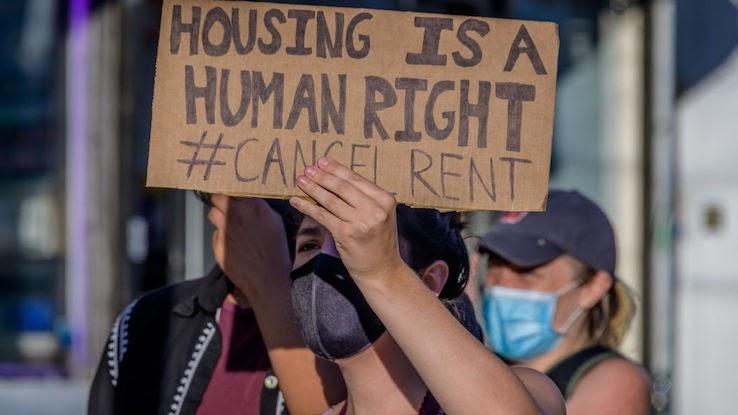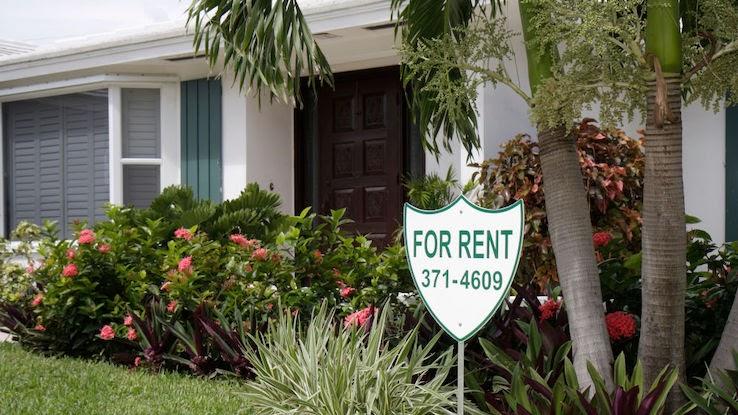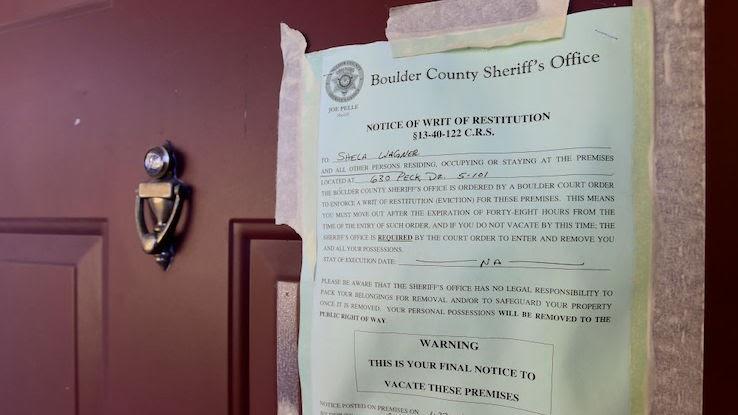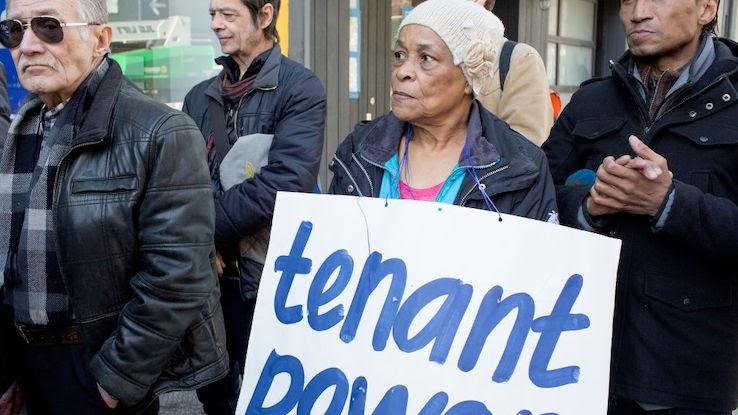What Are a Tenant’s Rights During Eviction?

A moratorium is a ban or a temporary pause regarding an ongoing policy. In the wake of the coronavirus pandemic and the sweeping employment and economic changes it brought, many cities began implementing emergency bans on evictions to protect tenants who were unable to pay rent on time or at all. In some cases, landlords were also barred from charging late fees or penalties for nonpayment to lessen financial burdens on tenants. Many of these moratoriums were instituted in March and April of 2020 and then extended well into 2021 via entities like the Centers for Disease Control and Prevention (CDC) and the Department of Health and Human Services (HHS).
As of August 27th, 2021, the Supreme Court has ended the federal eviction moratorium. Many tenants wonder what recourse is available to them if they’re unable to make their rent payments. Facing eviction can be frightening and destabilizing, particularly in the wake of a layoff or a looming cutoff of unemployment compensation. Many tenants aren’t in better financial positions now that the pandemic has endured longer than government leaders anticipated, and the potential loss of their housing stands to further complicate their lives. There is hope; protections exist to safeguard tenants, and it’s important to understand these rights if you are potentially facing eviction.
Tenants’ Rights: The Basics
Housing is a basic human right — or at least it should be. This is codified in the United Nations’ Universal Declaration of Human Rights and a number of other texts that serve as legal and reference sources on which countries, states and other similar areas under governance may base their laws. Another of these documents is the International Covenant on Economic, Social and Cultural Rights (ICESCR), which “recognizes the human right to adequate housing as a government obligation.” The U.S. signed the ICESCR but has never ratified it, meaning it has never officially enacted the provisions of the document or required them of any states. However, the right to housing is understood and recognized in a number of ways throughout the country, and one of the ways this manifests is in tenants’ rights.

As a renter, you have certain rights that protect you and your access to your rental property once you’ve signed a legally binding lease with your landlord. These protections are meant to safeguard you against unscrupulous landlords and help you maintain a safe and adequate standard of living. Tenants’ rights address topics related to your tenancy like discrimination, the right to a habitable home, privacy — and eviction. Although some federal protections for tenants exist, for the most part, each state sets its own tenancy laws, and some cities have even more specific regulations to ensure tenants receive fair treatment from landlords during an eviction.
Landlord-tenant law forms the basis of state statutes that govern different aspects of the rental of commercial and residential properties. According to Cornell Law School, many jurisdictions base their statutes on the Uniform Residential Landlord and Tenant Act or the Model Residential Landlord-Tenant Code. It’s critical to understand your state’s eviction laws to create a frame of reference for yourself. Learning what your landlord can and can’t do, as well as the various dates and limits involved and what the process looks like, helps you create a timeline that maps out what steps you’ll take if your landlord does start the eviction process.
What Does the Eviction Process Involve?
Although, again, each state’s laws regarding eviction vary, the process generally follows a similar trajectory no matter where you are. This sample timeline from the Tenants Union of Washington State can help you anticipate what to expect. Keep in mind that the lengths of time between each step of the process may vary depending on where you live, too; this outline is meant to give you a general idea about what an eviction looks like from start to finish.

In the initial stage of the eviction process, you receive what’s called a “pay or vacate” or “pay or quit” notice. This is a document that your landlord delivers to you when you haven’t paid rent or you’ve violated your lease in some way. It notes that you have a certain length of time to either pay the late rent with any applicable fees or cease the lease-violating behavior. If you don’t comply with the notice within the specified time period, your landlord can serve you a lawsuit with an eviction summons and complaint. They need to go to court to do this.
Depending on city and state laws where you live, a sheriff may need to deliver the lawsuit paperwork to you. Once you’re served with the summons and complaint, you have a certain amount of time to file an answer. The answer is a document you prepare and give to the court and your landlord’s attorney that lists any defenses you have for your case and amounts of money of yours that your landlord is holding. When the court receives this paperwork by the due date, a hearing is scheduled. If you don’t file your answer on or before the due date, a judge may set a default judgment against you in favor of your landlord.
During the hearing, you and your landlord need to appear in court and plead your cases. The judge listens and issues a ruling in favor of either you or your landlord. Although it’s less common, the judge also has the option to send your case to a trial. If the judge rules in your favor, the case is dismissed. However, if they rule in your landlord’s favor, you may still owe the rent you were unable to pay, along with other fees, and you’ll be evicted from the property.
If the judge rules to evict you, your landlord can’t show up at your home and immediately start taking your belongings or forcing you out. They need to provide the judgment to local law enforcement, and a sheriff must come to your rental property and serve you with a writ of restitution. This is a scheduling document that tells you the date and time by which you must move out of the home. Typically the sheriff returns on or a few days after that move-out date and can oversee the landlord’s removal of your belongings if you haven’t left the home by that time. The entire eviction process can take a month or longer, depending on your local laws and court system.
In order for an eviction to be valid, your landlord must follow state laws exactly, including filing paperwork after allowing the appropriate number of days to pass. On this page, you can select the state where you live to view what’s involved in its particular eviction process and to learn where you can find the relevant state statutes online to review. An attorney can help you with every step of this process, too.
What Rights Do You Have as a Tenant?
You have a number of rights as a tenant, like the right to livable conditions with working plumbing, heating and electricity. You have a right to live in a home that’s reasonably clean and that doesn’t pose any health issues. You have a right to privacy, meaning your landlord can’t unreasonably interfere with or enter your residence. You have the right to not be discriminated against by your landlord on the basis of your race, gender, familial status, disability, religion, ethnicity or national origin. And when facing an eviction specifically, you also have certain rights.

Perhaps most importantly, you have the right to fight an eviction filed against you, and you also have the right to stay in your rental home throughout the eviction process until a final judgment is made and, if a judge rules in your landlord’s favor, you’ve received the writ of restitution noting when you need to vacate the property. You also have the right to a fair eviction, meaning the landlord must follow all local and state laws exactly in order for the eviction to be valid. You have the right to receive all required notices about the process, and you also have the right to appear in court and plead your case to a judge as long as you file your own necessary paperwork on time.
Although it can feel daunting, you’re not at your landlord’s mercy if you’re facing eviction. Talking to an attorney or another group that provides legal advice can help you better understand your state-specific laws and ensure that your rights are protected during an eviction.
Protecting Yourself and Preparing for Eviction
If eviction bans begin lifting across the country, housing courts can begin reopening. This can pave the way for millions of rent-burdened households to face evictions that can be processed. What should you do if you’re worried about getting evicted if existing protections are rolled back? Making a plan gives you a roadmap to follow and can alleviate some of the anxiety that arises from this uncertainty.

Know Your Rights
The first step is to learn and understand your rights as a tenant. Most states have their own laws dictating various tenant protections, and these laws can even vary from city to city in the same state. You need to understand what your landlord can and cannot do when it comes to evictions, according to your state laws. This resource can help you start to learn more about landlord-tenant laws, but it’s also important to review your state’s official website for the most up-to-date information. Similar state-specific resources to check may exist with entities like your state’s rental housing association.
Stay in Your Home
If you do receive an eviction notice from your landlord, stay put. According to Cea Weaver, a statewide campaign coordinator for the Housing Justice for All coalition, one of the most important things you can do if your landlord moves forward with the eviction process is to not abandon your home. “The number-one thing to know now is you have rights,” Weaver told CNBC. “You can defend yourself in court. You can fight for your home.”
In order for you to actually have to move out, your landlord has to officially terminate your tenancy first. In many states, this means they must give you written notice that you need to move out within a certain period of time dictated by your state’s laws. If you don’t move out after that, the landlord will need to see the eviction process through all the way to a judgment from a court after proving that you violated your lease in a way that justifies ending your tenancy. At that point, and after the sheriff serves you the writ of restitution, you’ll need to move. But you’ll have time during this process to remain in your home and seek legal assistance to fight the eviction.
Get Assistance
Whether you need help understanding your rights as a tenant, anticipating what happens during an eviction or even defending yourself in court, getting in touch with a lawyer or organization that can answer your questions and help you prepare is essential. Legal issues like evictions can be difficult territory to wade through if you’re not well-versed in reading and interpreting laws, but people and groups exist in your community that can assist you with this. The “Helpful Resources for Tenants” section of this article lists a variety of entities you can contact to get started learning more about eviction, what fighting eviction entails and what steps you’ll take if your landlord pursues one.
Stay Up to Date
Check the news frequently for any updates about the state of the ban in your area. Individual state governors still have the power to implement new bans or extend existing bans to provide residents more housing security as the pandemic continues. Your situation could change overnight if a ban ends up getting continued. It’s helpful to stay informed about what’s going on so you can modify your plans if needed.
Helpful Resources for Tenants
Understanding evictions and how they relate to tenants’ rights can require some careful research, and it’s always a wise idea to get help from a knowledgeable source if you need to come up with a plan of action. The great news is that plenty of organizations and other resources exist to help renters navigate the often confusing and complicated world of tenants’ rights, even in the wake of the COVID-19 pandemic.

The U.S. Department of Housing and Urban Development (HUD) maintains a database of state-specific information that can help you learn more about the protections in your state and what rights you have as a tenant facing eviction. Click on your state’s name and scroll down to the “Get Rental Help” link under the “I Want To” heading to learn more.
Your state’s Office of the Attorney General is another helpful resource to consult to learn more about state laws regarding renters’ rights, and its website may also list different groups and organizations that you can consult if you need free legal help or want to find different forms of assistance available to you as a tenant. USA.gov’s State Attorneys General list allows you to select your state from a drop-down menu to access its attorney general’s website for further details.
The National Low Income Housing Coalition is an organization that works to change policies to help people with low incomes in the U.S. obtain safe, affordable and comfortable homes. It maintains a database of different state- and city-funded programs for people who are facing eviction or experiencing other issues related to their rental housing. Although some of the programs listed in the database may be dealing with changes in response to the coronavirus pandemic, it’s worth looking into what’s available in your area to see what kind of assistance you may be eligible for.
Community organizations that offer counseling services for tenants are also excellent resources to contact to learn more about tenant protections specific to your city or state. These groups may provide education about ways tenant rights can protect you, tenant responsibilities, state laws regarding tenants and landlords, and what the eviction process entails, along with steps you need to take to protect yourself when dealing with eviction. If you need rental assistance, tenant counseling groups may be able to guide you to other resources that can help you.
Similar to community organizations, tenants’ unions may be able to point you in the right direction for obtaining the help you need regarding your tenancy. Tenants’ unions are groups of renters who band together to advocate for their rights and fight for protections like rent control — and against eviction. While they’re not in the business of providing specific services to renters, union members may be able to point you towards local organizations that provide assistance to renters in various ways.
Another avenue for finding help with eviction-related questions and issues? Local legal groups. There’s a number of avenues you can explore here, including working with a low-income legal advice center, housing justice center, neighborhood legal clinic or volunteer legal service, among other options. Get started by contacting your state’s bar association or, again, by visiting your state attorney general’s website to determine if it lists any of these types of services. These groups and organizations provide solid legal advice relevant to your situation and can explain from a legal standpoint what’s involved in the eviction process and how you can protect yourself. If you decide to hire a lawyer to help you navigate any tenancy issues, these groups can connect you with someone who’s experienced, trustworthy and familiar with your situation.





